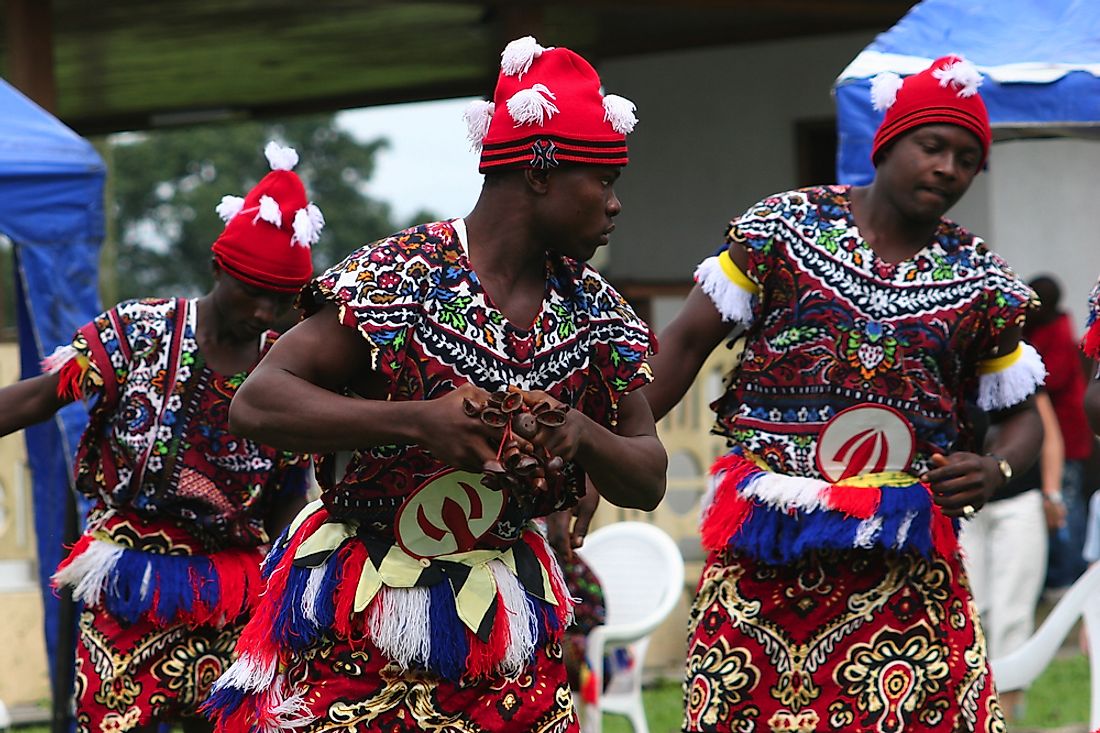Who Are The Ibo (Igbo) People?

5. Geographic Distribution and Early History
The Ibo ethnic groups of people have the largest proportion of their population living in Nigeria in West Africa. The Ibo homeland is spread from the lower area of the Niger River to the west, while the eastern side of the diaspora has the largest number in population in southern Nigeria. It is said that the Ibo tribes today are descended from the Nri, Nzam, and the Anam immigrants that came from the north and west of Africa many centuries ago. These immigrants arrived in Nigeria in the 15th Century, and they observed a calendar that had four days a week, seven weeks a month, and 13 months a year. The Ibo's traditional religious beliefs today tend to be a mix of Christian monotheism introduced by Europeans and traditional mythological deities including nature spirits.
4. Culture and Traditional Ways of Life
The community was the central focus of Ibo life in pre-colonial Nigeria. They lived in small villages composed of mud huts with thatched roofs. There were no kings, and local villages were instead governed by a council of common villagers, similar to those seen in the Ewe tribe of Ghana. This was peculiar to the Ibo people, as many tribes in Africa were ruled by a king. The Ibo followed a rite of passage for a baby boy that involved circumcision on the eighth day after birth. A name-giving celebration followed, and the event involved drinking and feasting. Courting a female Ibo took from one to several years, and a dowry was paid to the girl's family to seal the deal.
3. European Contact, the Slave Trade, and British Colonialism
The Portuguese were the first European to make contact with the Ibo people, doing so in the 15th Century. There was little trade between the Europeans and the Ibo people except for the slaves that were taken to the Americas and Europe. Most of these slaves were from Ibo villages who were either outcasts or criminals. They were sold to slave traders by the Aro Confederacy composed of African military states who later collapsed after the wars with Britain, who toppled their confederacy. British colonialism brought about abrupt changes into Ibo village life. The British centralized form of government was new to them, and caused confusion, though they accepted Christianity readily in many cases. Hospitals, roads, and electricity were introduced by the British as well.
2. Notable Igbo and Their Achievements
The Ibo people were a civilized group of people, as evidenced by their cultural artifacts and traditional relationships. The first notable Ibos were their village councils composed of common, yet capable, villagers. Then, in 1816, Bussa, an Ibo slave in Barbados, led a revolt that would change slavery forever. The 19th Century saw the birth of the "Father of Pan-Africanism", a man of Ibo descent named Edward Blyden. He was an educator, diplomat, politician, and writer. He is best known for his writings, which prodded free Africans from the United States and Britain to return to Africa and help the continent. Other notable Ibos are Paul Robeson, an American writer and actor, and Aime Cesaire, a politician and poet from French Martinique.
1. The Igbo of Today
The Biafran War in Nigeria occurred as a result of the Ibo people in Biafra desiring to secede from Nigeria. The civil war was fought from July 6th, 1967 until January 15th, 1970. The losses incurred by the Ibo nation were tremendous, and saw an event that included the total devastation of Biafra's many infrastructural components, including hospitals, schools, and homes. After the war, Nigerian banks refused Ibo bank account holders access to their money. The result was devastating, as the Ibo people lost all of their savings except for the meager 20 pounds they were each allotted. Fellow Nigerians refused to give Ibo people employment as well. Igboland in southern Nigeria later was rebuilt by the Ibos for the next twenty years, endeavors that were assisted by the exploitation of newly discovered oil wells nearby. Private businesses prospered in turn, and trends towards the economic recovery of Igboland have been ongoing ever since. A new threat to the largely Christian Ibo comes from Boko Haram and other Islamic radical groups which are making pushes ever further south into Nigeria, threatening the Ibo homelands.







